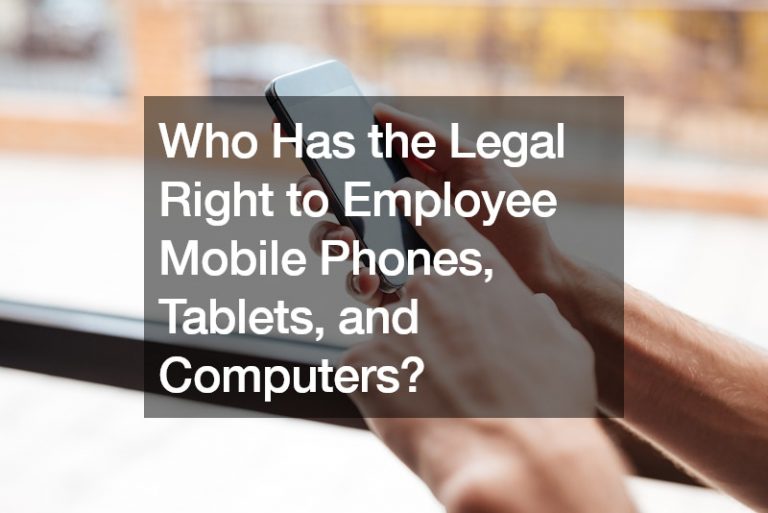In the workplace, the legal right to employee mobile phones, tablets, and computers can be a complex issue governed by various factors and laws. Employers generally have the authority to regulate and monitor the use of company-provided devices, but employees also have certain rights and expectations regarding privacy and personal use.
The legal framework surrounding employee device ownership often depends on specific circumstances, including company policies, employment contracts, industry regulations, and applicable state or federal laws. Generally, if the employer provides a device for work-related purposes, the employer typically retains ownership and control over the device and its contents. Having updated information will help in future court filings.
However, employees may still have privacy rights regarding personal data stored on these devices, especially if they have separate personal accounts or use the devices for personal use outside of work hours.
Additionally, laws such as the Electronic Communications Privacy Act (ECPA) and state-specific privacy statutes may impose restrictions on employers’ ability to access or monitor certain types of electronic communications or data.
Navigating the legal rights to employee devices requires a careful balance between employer interests in protecting company assets and information and employee rights to privacy and personal use. Employers should establish clear policies and procedures regarding device usage, monitoring, and ownership to mitigate potential legal risks and ensure compliance with relevant laws and regulations.





